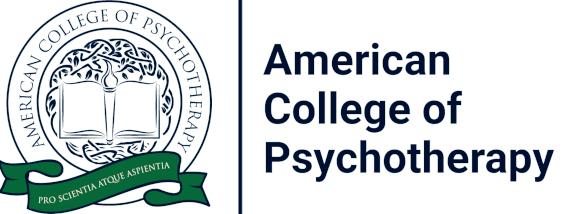
by Melody Lovell | May 3, 2023 | General
Do your clients have a fear that prevents them from doing fun things with their family? Have they ever only been able to watch at a distance as nieces and nephews partake in activities fearlessly, while their stomach flips and folds just as an observer? Maybe they’re unable to take their kids swimming because they fear water, or refrain from going on a family holiday abroad because they wouldn’t dare go on a plane.
Fear can hold us back from so many experiences. It limits us, it can control us, and not only do we feel fear itself (which is bad enough) but we have lots of feelings about that fear being part of us: shame, frustration, self-doubt, guilt, embarrassment, incapability, uselessness. Fortunately, EFT can help your clients overcome fear so they don’t have to be held back from the fun!
The Fishing Net
I see fear as being like a child’s fishing net. It takes the fish from its safe environment and leads it to a place where it is trapped and where breathing becomes impossible. There is nothing the fish can do about its situation. It must relinquish power and control to the net. But what the fish doesn’t know is that the child holding the net will soon return it to safety. It will rejoin the gentle flow of water, swim free again with its mates and regain power and control.
We humans can dodge the fishing net if we know where it is. However, sometimes it just comes out of nowhere. EFT has tools for that. And just like the fish, when your clients overcome fear, they can get back to the fun.
How can EFT help your clients overcome fear?
With the gentle guidance of a certified practitioner, people can use EFT to release fear from the body. A deep-rooted cause of the fear may or may not be revealed. When fear is triggered, the emotional part of the brain (the amygdala) is in overdrive and sensations are of high intensity. Things as simple as a memory, an image, a sight, or a sound can all be triggers. Tapping on acupressure points around the face and upper body will send signals to that emotional part of the brain to calm down those arousal levels. The rational brain can then take more control of the situation and the person can decide whether they are in fact in any danger.
How Adele used EFT to overcome fear
Adele had a lifetime of being frightened of heights. She was fed up with how much this limited the fun experiences she wanted to share with her family. I gave Adele three sessions of EFT. We tapped on previous intensive memories where she had become stuck when up high (including being trapped on a fair ground ride). Many physical sensations arose during the process, and we gently released them throughout the rounds of tapping. We tapped on the feelings she had about having this fear and the pressure she felt about not being particularly adventurous in her life.
Adele now felt ready to put things to the test. So off she went with a sense of buzz and excitement (rather than fear) on a ‘Go Ape’ adventure trail in the trees with her family. Platforms, ropes, bridges, zip wires, all looming high.
Equipped with the tools of Tapping
It didn’t go totally smoothly for Adele. Six meters up high and looking at the bridge in front of her, her body started to react. Panic set in and she couldn’t breathe. She felt stuck, paralyzed with fear. The fishing net had caught her and if she started the course, she knew she couldn’t turn back. She heard a man’s voice, “Are you okay?”. She started to repeat to herself “I’m okay, I’m okay”. This reminded her of one of the phrases we used in Tapping. “Even though I’m feeling this sensation, it’s okay to have that feeling.”
Adele tapped. Her breathing changed back to normal. She could take control of her body again and her brain seemed to recalibrate. Adele was no longer caught in the fishing net. Instead, she was adjusting to the environment around her and became rational yet understandably still cautious of her safety. With lowered arousal levels and with kind, encouraging support from nearby family and a staff member Adele put one foot in front of the other and started the tree-top trail. With harness and cables safely attached she went higher and higher. Bridges become more difficult to cross, but she did it! She felt exhilarated.
In Conclusion
Now, I am not saying that your clients will be able to eradicate all sense of fear after a few sessions of EFT. They won’t suddenly be fearless of extreme sports, partaking in free solo climbing down Mount Everest or white water rafting down the Zambezi River. They won’t be free from fear, and that is a good thing. After all, fear is necessary. It keeps us from danger. But what EFT can do is help heal past wounds associated with a fear. It can help your clients feel better about the fear and the beliefs they have about it. EFT can also provide them with tools to use when they are faced with fear or have just had a frightening experience. They can then also help others in their moments of fear.
Author Melody Lovell is an Advanced EFT Practitioner specializing in working with fears, anxiety, bad habits, cravings, and stress. She is certified and accredited by EFTInternational and serves on EFTi’s Communications team. Melody is English and based in the Southwest of France. She has extensive experience and knowledge of working with children and their families.

by Wayne Hulon | Mar 14, 2020 | General, Members Blog
John O’Donohue, in his book Anam Cara, explains that, in the Gaelic language, there are two powerful words that serve to awaken us and assess the depth of our lives and relationships. These two words are Anam Cara. In the Celtic tradition Anam Cara means “Soul Friend”. An Anam Cara is a teacher, companion, and spiritual guide. One with whom we can reunite with our interior world, and share our deepest hidden intimacies, without judgement or criticism. With an Anam Cara we can reveal the pain, hope, joy, and fears in the deepest recesses of our mind and heart.
This Anam Cara relationship transcends the conventional understanding of any relationship previously known as well as the understanding of others. Once encountered, there is a reverence, a humility, and a wisdom that reveals a recognition, a “knowing”, with a connectedness, allowing us to discover and express our most authentic self. This relationship creates a sense of belonging and acceptance that is timeless.
All that most of us want is to be loved, regarded, and accepted, just as we are. We long to be seen and understood without pretention or performance. Most of us long to step from behind the mask and be known, welcomed, and celebrated. When this happens, we are truly at home.
The Anam Cara holds that creative tension whereby we individuate, find our voice, and having listened, hear our own wisdom. It is in this place we experience safety through our vulnerability. In this place we confess that we really “do not know” and therein become teachable. It is here we find that what we thought was so shameful or reprehensible, is the path to the divine and where we had thought we were utterly alone, we find we are with all mankind.
In this loving consciousness, where the human and divine meet, there is a depth of awareness and reverence for each other. The Anam Cara does not provide an easy way, rescue us, or tell us what we want to hear. The Anam Cara maintains boundaries, holds us accountable, confronts us, and expands our perception. The Anam Cara does not buy into our distortions but patiently waits for us to discover other perspectives, allowing us to find our own path, even at the risk of losing the relationship. Anam Cara invites us to deep, honest reflection and personal responsibility and is there for us while we agonize.
In our lives, we all need an Anam Cara. We need this “Soul Friend” and the awareness that brings healing and wholeness, for it is one of the greatest gift’s of this relationship. Having experienced this Anam Cara love and friendship, we are fundamentally changed. It is as though blind eyes are opened. We see the world differently, understand differently, and respond differently. This transformation changes our awareness and how we are in the world. We find ourselves revitalized and restored. Even more, our relationship with Aman Cara, brings us back to the familiar place from which we began our journey, only to see it, as though for the first time.
Watch for and welcome your Anam Cara, that you too may be a “Soul Friend” to another.
Warm regards,
Wayne Hulon MDiv. ABCP

by Wayne Hulon | Nov 1, 2019 | General
 Who Are We?
Who Are We?
We are a multidisciplinary collaboration of professionals representing the fields of psychotherapy, psychology, psychiatry, counseling, academic leadership and integrative medicine.
Who do we serve?
You, the clinician. We recognize the importance for clinicians to access a supportive, growth-oriented community with enriching, sustaining, and innovative resources. The American College of Psychotherapy wishes to provide opportunities for personal and professional growth, practice development, and the latest evidence-based research and treatment modaltiities through quality education and training by the most highly regarded experts in the field.
With such diverse disciplines of psychiatry, psychotherapy, nueroscience, addiction, trauma and integrative medicine, now coming together, it is truly an exciting time to be professionals in the field of Mental Health.
How do we differ from other organizations?
We are not a “vanity organization”. If you are not passionate about psychotherapy, we are probably not for you. We are a “working” organization, dedicated in the development of personal and professional relationships with those who have a passion for excellence in patient care. We are continuously acquiring, inviting, and selectively engaging other organizatons to join with us in this unique endeavor. Just as our brains function optimally in relationship with others, so we believe there is a “collective wisdom” that emerges when diversity engages in dialogue.
It is our intent to provide a forum in which therapists and practitioners can engage in dialogue, share support and resources, while experiencing the highest quality of evidence- based research and training.
Are there financial benefits to membership?
Yes, we have created the opportunity whereby through membership in the American College of Psychotherapy, your Continuing Education Credits will be applied toward American Board Certification in Psychotherapy, as well as meet the requirements of your state licensure. This doubles the value of your financial investment in your continued education and professional training.
As our organization grows, we are able to negotiate with our Approved Providers, in your behalf, for discounts on workshops, conferences, symposiums, and even online courses and webinars. These savings go entirely to you and not to our organization.
We add value to your educational investment by approving CEU hours, toward Board Certification, for online courses, webinars, and readings, to be later verified by testing. This is particularly valuable for those who live remotely to major metropolitan areas or those financially or physically unable to travel.
We are supported solely by membership dues and advertising and do not “sell” events, courses, programs, or books. Ethically that allows us to approve or recommend these resources based on their quality and savings to you, rather than revenue generated for our organization. All savings negotiated go directly to the membership. There is “power in numbers”. Yes, by joining, you allow us to negotiate even more financial benefits to our members, that would not available otherwise. We will continue to negotiate savings in travel, lodging, with even more valuable offerings to come.
Equally important financially is the understanding and the efficacy of our practice of psychotherapy. We seek to protect, develop, and promote our profession of psychotherapy.
Defining your professional identity as a member of the American College of Psychotherapy, an assurance of competance with insurance companies, managed care, hospitals, courts, and other professional organizations is solidly established. This increases confidence of patients as well as other professionals. By identifying, defining, and differentiating the scope, function, and training of our profession, personally and professionally, we will continue to learn and grow, our practices will serve effectively, and the rich tradition of our profession will flourish.
Our commitment is
to facilitate cost effective training, thus endorsing and supporting psychotherapy to the general public, institutions, managed care, hospitals, business, legislative, and governmental agencies. Thereby, through these efforts, we intend to protect, promote, and provide the highest quality of excellence in psychotherapy and a secure and meaningful professional career.
Can you explain the two tracks concept?
Developmentally we will travel together on two tracks. While our “task” towards excellence will be to integrate research, education and training as clinicians, the “maintenance” and desire to grow in wisdom will inevitably emerge from places of vulnerability and rich dialolgue with those our fellow travelers , as sojourner, among peers. In other words, what we would ask of our patients, we must first do for ourselves.
We are deeply committed to exposing you to the brightest minds and richest wisdom, found not only through our experts, but within each of you. It is our most sincere hope you will find this platform to be one in which your voice will be heard, and your wisdom recognized. We invite you into “community” and welcome your feedback and suggestions.
Warm regards,
Wayne Hulon
M.Div. LPC ABCP
Executive Director
The American College of Psychotherapy




